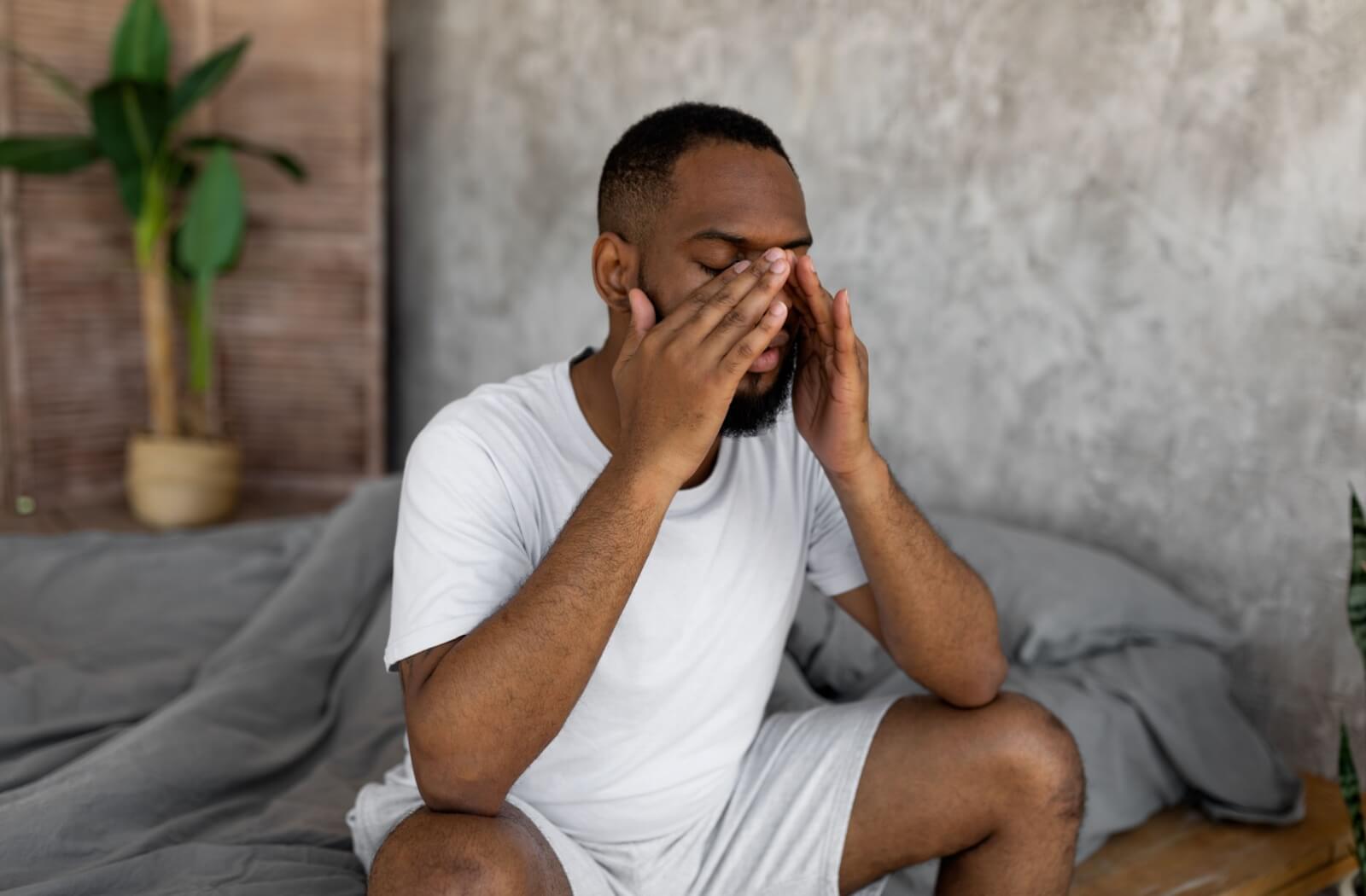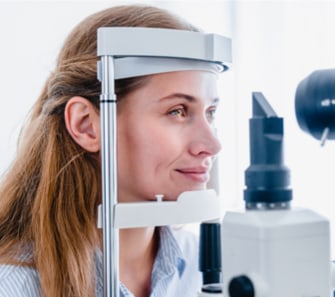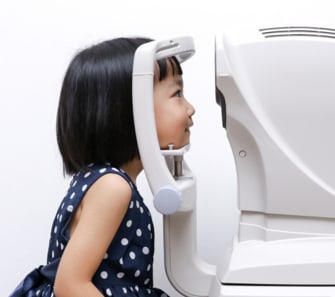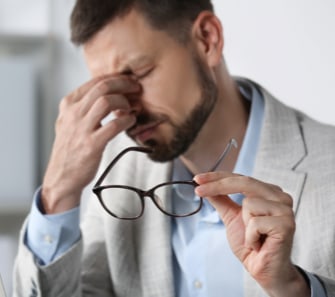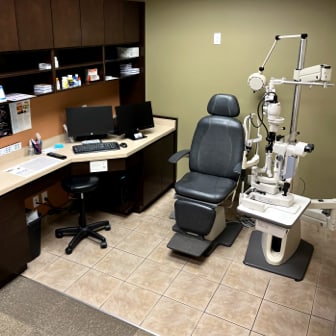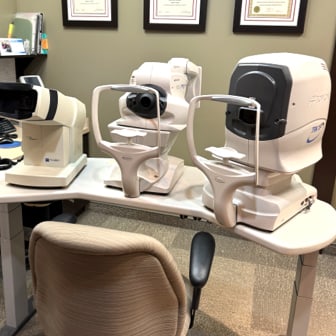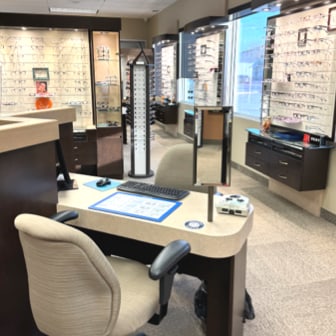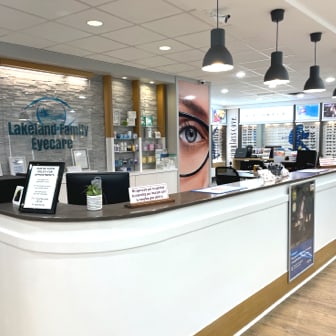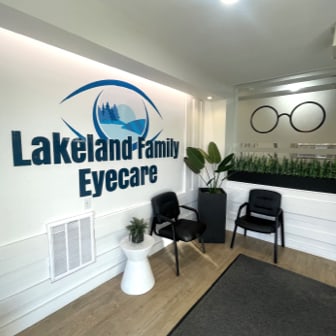Dry eyes are one of the most common eye disorders. Millions of people experience dry eye at some point in their lives, especially as they get older. Many people’s eyes dry out overnight, leading to that itchy, sandpapery feeling when they wake up in the morning.
The most common reasons for waking up with dry eyes are:
- Dry environments
- Allergies
- Medications
- Nocturnal lagophthalmos
- Poor-quality tears
Fortunately, you don’t have to put up with your eyes feeling gritty when you wake up. Lakeland Family Eyecare offers you many options for managing dry eyes.
Reasons for Dry Eyes When You Wake Up
Dry Environments
If you live in a dry environment, your tears may evaporate faster than your body can produce them. This is especially true if you’re sleeping somewhere that’s windy (either outside or with a fan running), or if there’s smoke in the air (such as from wildfires).
Allergies
Dry eyes can sometimes be a sign of an allergic reaction. Itchy, watery eyes are a common allergy symptom. Dry eyes resulting from allergies are often caused by environmental allergies, like hay fever or pet dander.
Medications
Certain types of medications are known to cause dry eyes as a side effect. The most common ones are antihistamines, decongestants, hormone replacement therapy, hypertension (high blood pressure) medication, and over-the-counter pain medications (especially ibuprofen).
Nocturnal Lagophthalmos
Nocturnal lagophthalmos is a condition where a person’s eyes don’t close completely while they’re asleep. The gap between the eyelids leaves the eye more exposed to the environment than it normally would be. When this happens, tears will evaporate more quickly than the body produces them.
Poor-Quality Tears
A person’s tears need to have a specific chemical makeup to hydrate their eyes properly. The tear film that keeps a person’s eyes hydrated is made up of three layers. If any one of those layers isn’t formed correctly, the tear film won’t function properly, and will lead to dry eye.
One common reason for poor-quality tears is a condition called meibomian gland dysfunction. The meibomian glands are found on the inside edge of the eyelid, and produce an oil that makes up one of the three layers of the tear film. If the meibomian glands become plugged or stop working, the oily layer of the tear film won’t form correctly.
How to Prevent Dry Eyes When You Wake Up
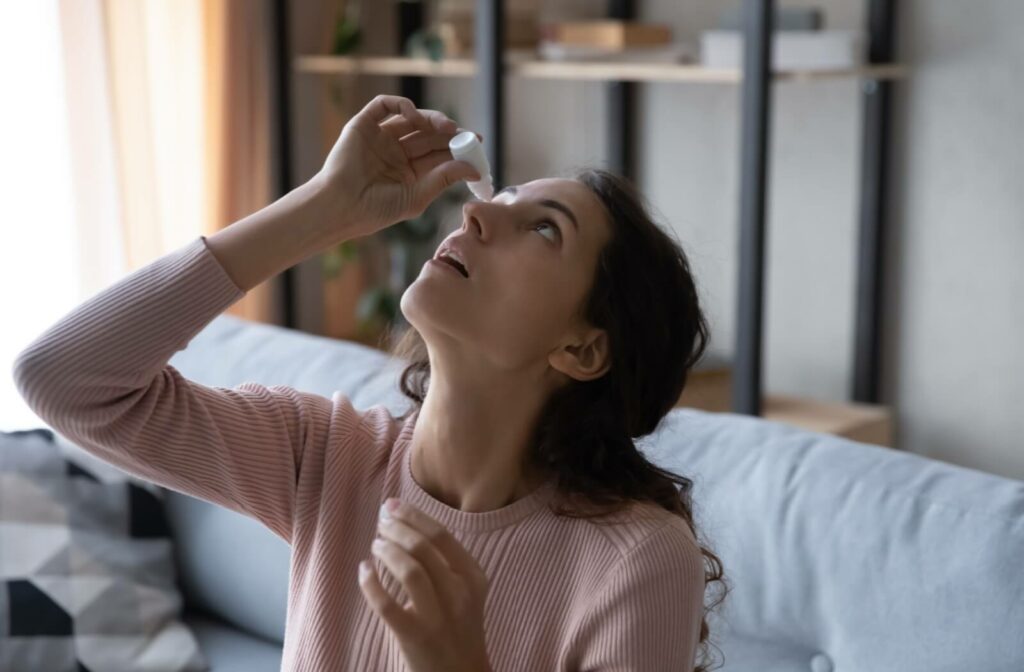
Use A Humidifier
If you wake up with dry eyes because you’re sleeping in a dry environment, using a humidifier can help keep your eyes hydrated by increasing the amount of moisture in the air. When possible, use filtered or distilled water in your humidifier. Tap water with high levels of sediment can allow the sediment to collect on your eyes, making them feel gritty.
Stay Hydrated
How much water you drink will affect how well your body can produce the tears needed to keep your eyes hydrated. Make sure you’re drinking an appropriate amount of water, especially in the evenings.
Use Warm Compresses
Covering your eyes with a warm compress, like a washcloth soaked in warm water (not hot!) or a Bruder mask, can help unblock glands and promote tear production.
Rest Your Eyes
Spending a lot of time looking at a screen places stress on your eyes. Taking steps to reduce eyestrain, such as following the 20-20-20 rule, gives your eye muscles a chance to relax. Making sure you blink often throughout the day will also help keep your eyes hydrated, to lubricate them as well as possible before you go to bed.
Eye Drops
Eye drops, sometimes called “artificial tears”, are available at most pharmacies. They can be very effective at reducing dry eye symptoms. However, over-the-counter eye drops are only meant for short-term use. If you find yourself using eye drops regularly over a long period of time, you should schedule a comprehensive vision exam to make sure there aren’t any underlying problems with your eyes.
In-Office Treatments
If none of the at-home treatments above have helped, you can ask your optometrist about in-office treatments. This might include thermal iLux treatments or expression to clear blocked glands, prescription eye drops, punctal plugs (a plug inserted into your tear duct to help tears stay inside your eye), or in some cases, surgery.
Say Goodbye to Dry Eye
Dry eyes can be a frustrating condition to deal with. If you suffer from waking up with dry eyes, the specialists at Lakeland Family Eyecare can help you wake up with your eyes feeling refreshed instead of itchy and irritated. For more information, book an appointment with us today!

